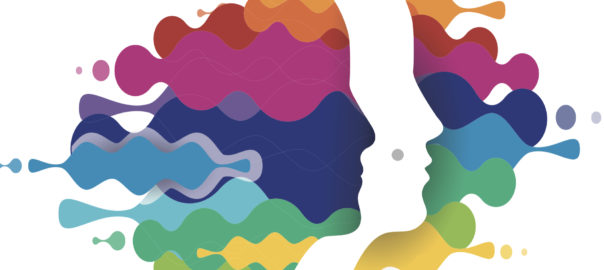It was the best of times, it was the worst of times, it was the age of woke culture, it was the age of suppression, it was the epoch of making America great again, it was the epoch of controlling American ovaries. The seemingly season of light, overshadowed by the inevitable season of darkness. Where hope was a distant wish and despair was the cruel reality.
Where the whole world was before us, but we had to get there with half the pay. A time where we, the women were all going straight the other way: to hospital beds, to fill our anxiety medication, to inject ourselves with hormones to be able to birth a human being while balancing a career and unrealistic expectations set by a society designed by men, for men.

obstacles working women face while men sprint ahead, 2019.
The graphic above went viral when Mahindra, a Mumbai based billionaire shared the illustration on Twitter, posting “I salute every working woman & acknowledge that their successes have required a much greater amount of effort than their male counterparts” (Mahindra, 2019). The illustration resonated with so many due to the clear depiction of the barriers women face when choosing to have a successful career.
Bugid and England explored a barrier women face in the workforce: The Motherhood Penalty. This outlines the thought that motherhood negatively affects women who desire to have a career while raising their children. As Carlin demonstrated in his viral cartoon, the penalty suggest that women with children lose work experience at the expense of raising their children while taking care of the family and household duties. Over the past three decades, that has become increasingly common in the United States, as birthrates have declined for women in their twenties and jumped for women in their late thirties and early forties, according to a new report from the U.S. Census Bureau. The trend has pushed the median age of U.S. women giving birth from 27 to 30, the highest on record (Minchillo, 2022).
This results in potentially longer maternity leaves as older, new mothers will take longer to return to work after having an extended period of recovery from childbirth, yet federally funded maternity leaves in America are non-existent (Bryant, 2020). The Motherhood Penalty also reveals that working mothers are less productive at work due to the exhaustion of child raising and they are often inclined to elect out of high paying jobs for lower paying jobs that are more flexible or “mother friendly” (Budig & England, 2001).
The rate of attrition at which women are burning out is alarming. It is clearly evident that after the Covid-19 Pandemic and “The Great Resignation” in education, women are electing to give up their dreams of simultaneously being a mother and a professional. As a society, it is our obligation to support women as valuable members of our economy. Michelle Obama said it best when she shared, “No country can ever truly flourish if it stifles the potential of its women and deprives itself of the contributions of half its citizens.”
It is up to us to ensure that this period is not like any other periods, that even its nosiest authorities will not overcome in silencing the far better things that we’ll do, the far better things that we, as women have ever known.
Reference:
Bryant, M. (2020). Maternity leave: US policy is worst on list of the world’s richest countries. The Guardian. https://www.theguardian.com/us-news/2020/jan/27/maternity-leave-us-policy-worst-worlds-richest-countries
Budig, M. J., & England, P. (2001). The wage penalty for motherhood. American Sociological Review, 66(2), 204–225. https://ezproxy.latech.edu:2089/10.2307/2657415.
Dickens, C. & Dunn, H. (1921) A Tale of Two Cities . New York, Cosmopolitan Book Corporation.
Mahindra, A. [@anandmahindra] (2019, Feb. 5). I’ve been helping to baby-sit my year old grandson this past week & it’s brought home to me the stark[Tweet]. Twitter.
Minchillo, J. (2022). Motherhood deferred: U.S. median age for giving birth hits 30. Decisions by college-educated women to invest in their educations and careers so they could be better off financially when they had children have contributed to the shift toward older motherhood. NBC News. https://www.nbcnews.com/news/motherhood-deferred-us-median-age-giving-birth-hits-30-rcna27827
